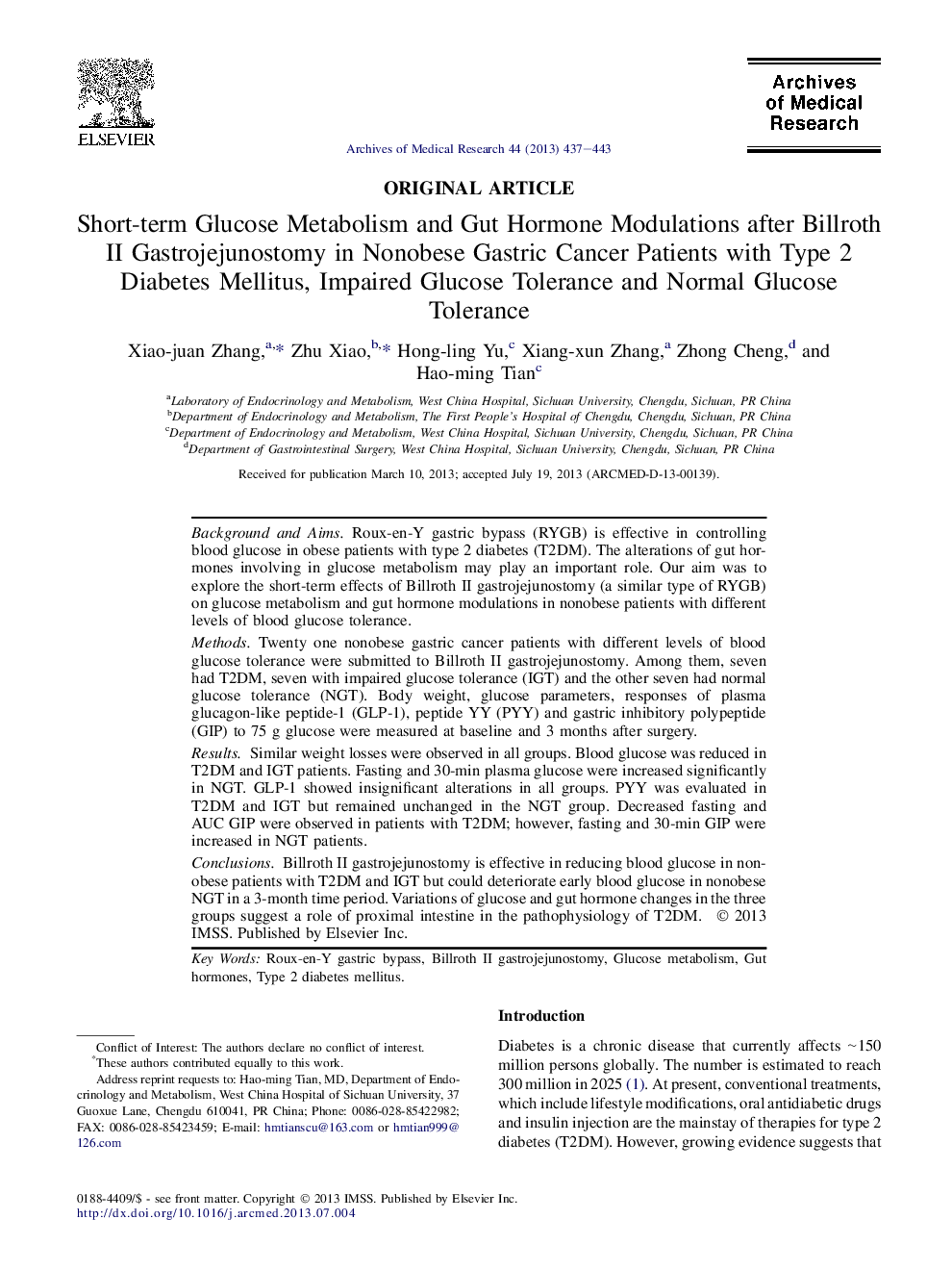| Article ID | Journal | Published Year | Pages | File Type |
|---|---|---|---|---|
| 3446752 | Archives of Medical Research | 2013 | 7 Pages |
Background and AimsRoux-en-Y gastric bypass (RYGB) is effective in controlling blood glucose in obese patients with type 2 diabetes (T2DM). The alterations of gut hormones involving in glucose metabolism may play an important role. Our aim was to explore the short-term effects of Billroth II gastrojejunostomy (a similar type of RYGB) on glucose metabolism and gut hormone modulations in nonobese patients with different levels of blood glucose tolerance.MethodsTwenty one nonobese gastric cancer patients with different levels of blood glucose tolerance were submitted to Billroth II gastrojejunostomy. Among them, seven had T2DM, seven with impaired glucose tolerance (IGT) and the other seven had normal glucose tolerance (NGT). Body weight, glucose parameters, responses of plasma glucagon-like peptide-1 (GLP-1), peptide YY (PYY) and gastric inhibitory polypeptide (GIP) to 75 g glucose were measured at baseline and 3 months after surgery.ResultsSimilar weight losses were observed in all groups. Blood glucose was reduced in T2DM and IGT patients. Fasting and 30-min plasma glucose were increased significantly in NGT. GLP-1 showed insignificant alterations in all groups. PYY was evaluated in T2DM and IGT but remained unchanged in the NGT group. Decreased fasting and AUC GIP were observed in patients with T2DM; however, fasting and 30-min GIP were increased in NGT patients.ConclusionsBillroth II gastrojejunostomy is effective in reducing blood glucose in nonobese patients with T2DM and IGT but could deteriorate early blood glucose in nonobese NGT in a 3-month time period. Variations of glucose and gut hormone changes in the three groups suggest a role of proximal intestine in the pathophysiology of T2DM.
